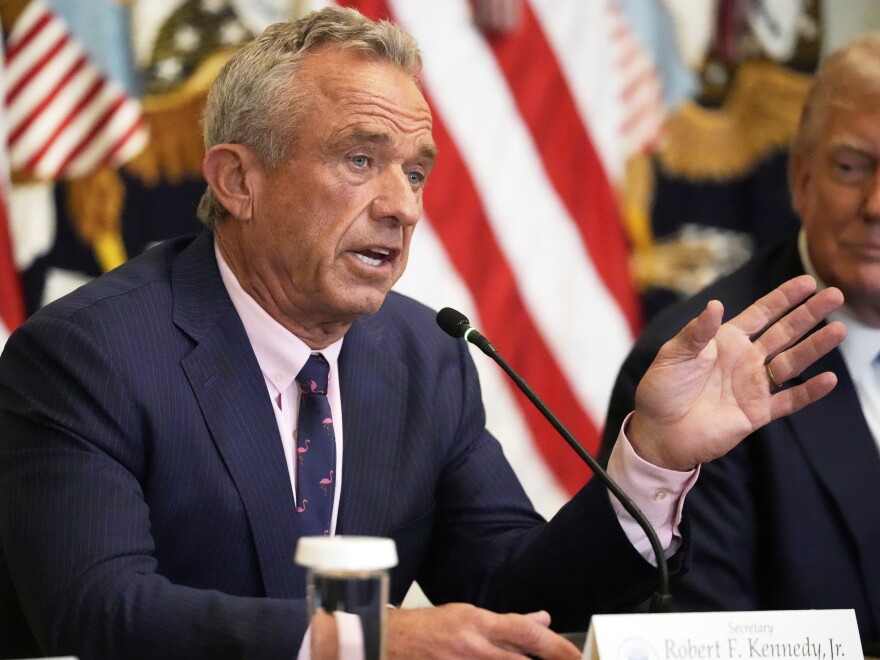Washington Contracts and funding for certain vaccinations being developed to combat respiratory viruses including COVID-19 and the flu will be terminated by the Department of Health and Human Services.
On Tuesday, Robert F. Kennedy Jr. issued a statement announcing the cancellation of 22 mRNA vaccine development projects worth a total of $500 million.
Kennedy’s decision to end the initiatives is the most recent in a series of rulings that have fully implemented the longstanding vaccination skeptic’s concerns at the country’s health department. As a measles outbreak grew worse, Kennedy withdrew his advice on the COVID-19 vaccine, dismissed the panel that recommends vaccines, and declined to provide a strong endorsement of vaccinations.
In a video posted on social media, the health secretary attacked mRNA vaccines and gave an explanation for the decision to halt programs being led by Pfizer and Moderna, two of the country’s top pharmaceutical corporations, that provide protection against viruses such as the flu, COVID-19, and H5N1.
“To replace the troubled mRNA programs, we’re prioritizing the development of safer, broader vaccine strategies, like whole-virus vaccines and novel platforms that don’t collapse when viruses mutate,” Kennedy stated in the clip.
The mRNA technology used in vaccinations is safe, according to infectious disease experts, who also attribute the 2020 coronavirus pandemic to its creation during the first Trump administration. They cautioned that without mRNA’s assistance, future pandemics might be more difficult to contain.
“I don’t think I’ve seen a more dangerous decision in public health in my 50 years in the business,” said Mike Osterholm, a pandemic preparedness and infectious disease expert from the University of Minnesota.
He pointed out that the possible benefits of mRNA technology include quick manufacture, which would be essential in the case of a new pandemic that calls for a novel vaccine.
Dr. Paul Offit, a vaccine specialist at Children’s Hospital of Philadelphia, said the mRNA projects’ shelving is ill-advised given the ongoing worries about a bird flu pandemic.
Regarding the current mRNA vaccinations, Offit stated, “It’s certainly saved millions of lives.”
Researchers worldwide are investigating the potential of mRNA for cancer immunotherapies in addition to its application in vaccines against infectious diseases. Earlier this year, millionaire computer entrepreneur Larry Ellison hailed mRNA’s potential to heal cancer at the White House.
Historically, vaccinations have involved cultivating virus fragments, frequently in chicken eggs or enormous vats of cells, and then purifying the resulting material. The mRNA method begins with a fragment of genetic code that contains protein-making instructions. After scientists select the protein to target and inject that blueprint, the body produces just enough of the vaccine to initiate immunological protection.
“Other uses of mRNA technology within the department are not impacted by this announcement,” HHS stated in a statement on Tuesday.
Although the mRNA technology has not yet received approval for a flu shot, it is utilized in licensed COVID-19 and RSV vaccines. In contrast to conventional vaccines, Moderna, which was researching a COVID-19 and flu mRNA injection combo, had stated that it thought mRNA may expedite the production of flu shots.
According to the health department’s statement, the canceled mRNA projects indicate a “shift in vaccine development priorities,” and it will begin “investing in better solutions.”
Kennedy stated in the statement, “HHS supports safe, effective vaccines for every American who wants them.”
At a press conference in Anchorage, Alaska, hours later on Tuesday, Kennedy announced that work is being done on a substitute with the state’s two Republican U.S. senators.
The administration’s goal, he said, is to create a “universal vaccine” that imitates “natural immunity”.
“It could be effective we believe it’s going to be effective — against not only coronaviruses, but also flu,” he stated.
Copyright 2025 NPR






